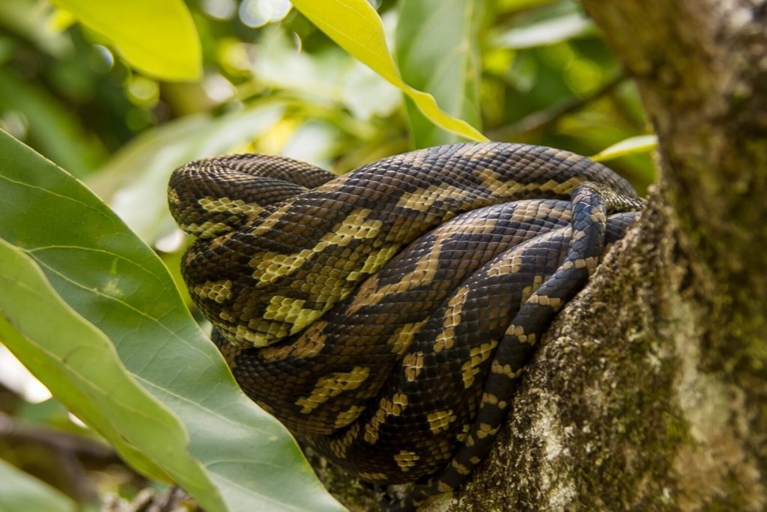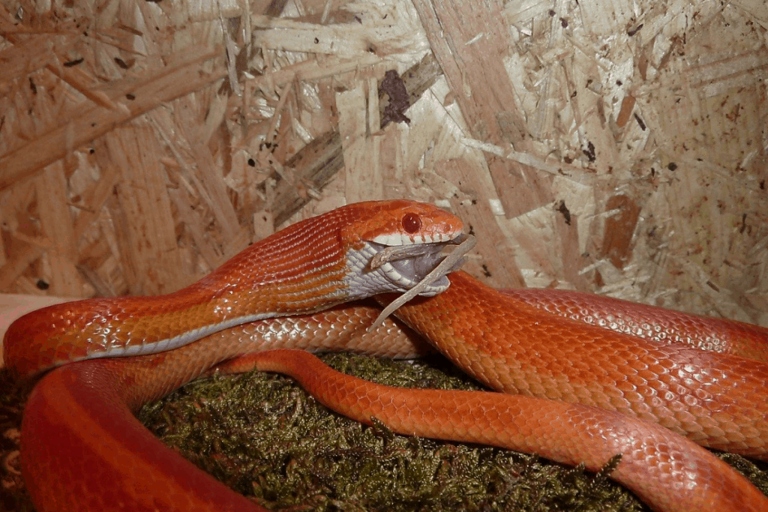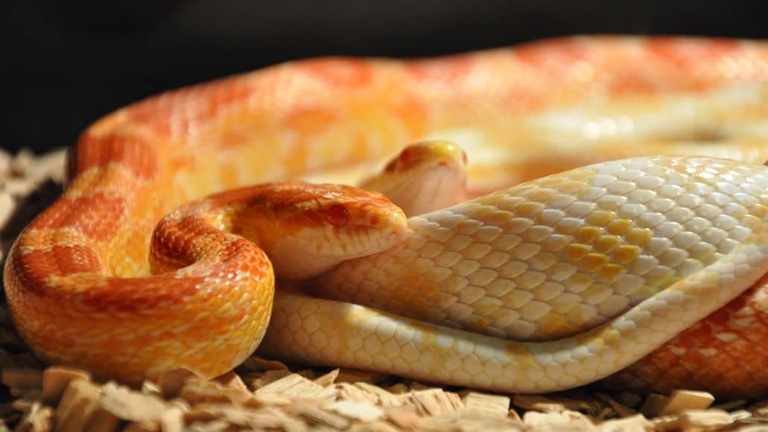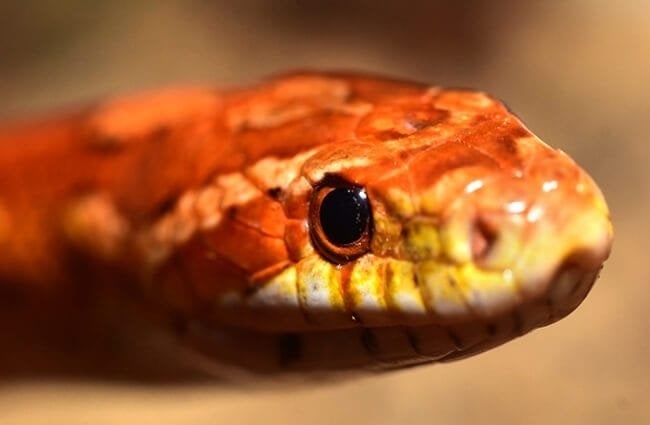Corn snakes are a type of rat snake that is commonly kept as a pet. They are native to the southeastern United States. Corn snakes are non-venomous and are not considered dangerous to humans. One of the most common questions that people ask about corn snakes is whether or not they hibernate. The answer is yes, corn snakes do hibernate. However, they do not undergo true hibernation. Instead, they undergo a process called brumation.
Corn Snakes Go Through Brumation Periods
They will often seek out a warm, safe place to spend the winter, such as a rock crevice or a burrow. Corn snakes go through a process called brumation in the wild. This is when they slow down their metabolism and activity level in order to conserve energy during the winter months.
They will also shed their skin less often. This is because their metabolism is slowed down and they do not need to replace their skin as often. During brumation, corn snakes will not eat or drink.

After this period, corn snakes will gradually return to their normal activity level and feeding schedule. Brumation usually lasts for several months, from October to March.
If you keep a corn snake as a pet, you will need to provide a warm, safe place for it to brumate. This can be a reptile hide box or a plastic tub with a lid. You should also reduce the amount of food you offer your corn snake during this period.
How Long Do Corn Snakes Hibernate?
Corn snakes are a species of rat snake that is native to the southeastern United States. Corn snakes are non-venomous and are popular pets due to their docile nature and beautiful coloration. They are typically found in cornfields, hence their name.

Corn snakes typically hibernate from October to March. Corn snakes will brumate, which is a state of inactivity, during this time. During this time, they will burrow into the ground or find a hidden spot where they can be safe from the cold weather.
When the weather starts to warm up in the spring, corn snakes will come out of hibernation and will be ready to mate and start the new year. During hibernation, corn snakes will not eat or drink. They will live off of their stored body fat.
When Do Corn Snakes Hibernate?
During this time, they will burrow into a warm, safe place and remain inactive. Their metabolism slows down and they do not eat or drink during this time. Corn snakes typically hibernate during the winter months, from October to March.

They will not eat or drink during this time, but they may come out of brumation if the temperature drops and they need to eat. During brumation, corn snakes will again seek out a cool, safe place to hide and their metabolism will slow. Brumation is a similar process that corn snakes may undergo during the summer months if the temperature becomes too hot.
Do Pet Corn Snakes Hibernate?
Corn snakes are non-venomous and typically grow to be about 4-5 feet long. They are typically found in fields and woods, and are also popular pets. Corn snakes are a type of rat snake that is native to the southeastern United States.

Hibernation is a process of dormancy that allows animals to conserve energy and survive during periods of cold weather or food scarcity. One of the most common questions about corn snakes is whether or not they hibernate. The answer is yes, corn snakes do hibernate.
During hibernation, corn snakes will typically burrow into a safe place, such as a hollow tree or log. Corn snakes will typically hibernate for several months, from October to March. They will often coil up into a tight ball in order to conserve heat.
If you have a pet corn snake, it is important to provide a safe and warm place for it to hibernate. You should also make sure that the snake has access to food and water, as it will not be eating or drinking during this time.
Corn Snake Staying Hidden
Corn snakes are known for their ability to stay hidden. They are often found in the crevices of trees and in the underbrush. Brumation is a period of inactivity that corn snakes undergo during the winter months. Corn snakes are also excellent swimmers and can often be found in the water. Corn snakes are not known to hibernate, but they do brumate.
Frequently Asked Questions
1. Do corn snakes hibernate?
Yes, corn snakes do hibernate. This process is also known as brumation.
2. What is brumation?
Brumation is a type of hibernation that reptiles undergo. During this process, reptiles will lower their body temperature and metabolism.
3. Why do corn snakes hibernate?
Corn snakes hibernate to survive the winter months when food is scarce and the weather is cold.
4. How long do corn snakes hibernate for?
Corn snakes typically hibernate for 3-4 months.
5. What do corn snakes eat during hibernation?
Corn snakes do not eat during hibernation. They live off of their stored body fat.
6. Do corn snakes need to be hibernated?
No, corn snakes do not need to be hibernated. However, it is beneficial for their health and helps them to survive the winter months.
7. How do you hibernate a corn snake?
There are a few steps you need to take in order to properly hibernate a corn snake. First, you will need to lower the temperature in their enclosure. You can do this by using a reptile heating pad or a light bulb. Next, you will need to reduce the amount of food you are feeding your corn snake. Finally, you will need to provide your corn snake with a hiding spot. This can be a cardboard box or a log.
8. What are the risks of hibernating a corn snake?
There are a few risks associated with hibernating a corn snake. If the temperature in their enclosure is too low, they can develop frostbite. If the temperature is too high, they can overheat. If you do not reduce the amount of food you are feeding your corn snake, they can become obese.
9. What should you do if your corn snake refuses to hibernate?
If your corn snake refuses to hibernate, it is best to consult with a reptile veterinarian. They will be able to help you determine the best course of action.
10. Can corn snakes hibernate with other reptiles?
Yes, corn snakes can hibernate with other reptiles. However, it is important to make sure that the other reptiles are of a similar size.
Final thoughts
Corn snakes do not hibernate, but they do undergo a process called brumation. During brumation, corn snakes will burrow underground and enter a state of dormancy. Their metabolism will slow and they will not eat or drink for several months.
